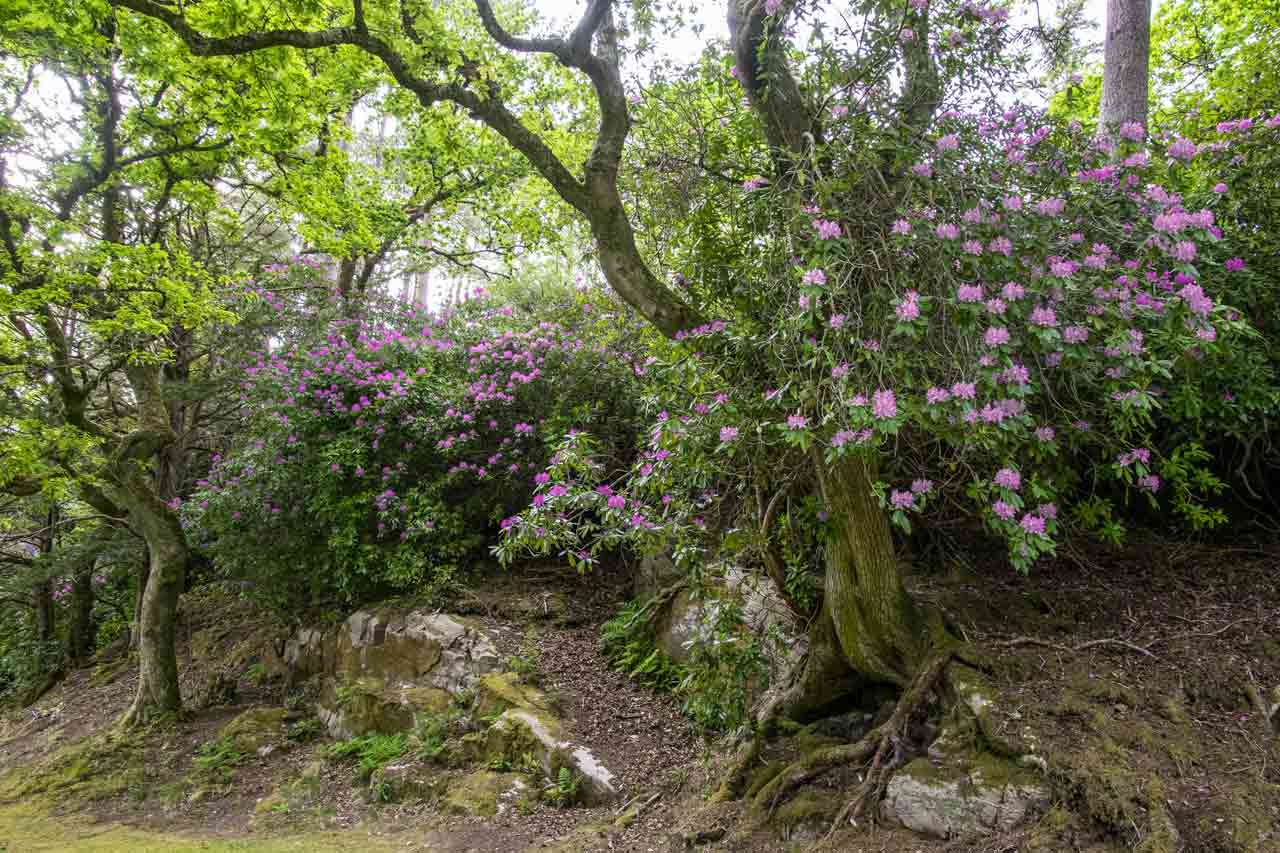Image: Caz Austen
The Woodland Trust is urging gardeners not to buy rhododendron ponticum this spring, as it looks to stem the threat of deadly tree disease and protect our native wildlife.

The popular plant may look nice but not only can it carry disease, it is known as an “invasive species” which can wipe out huge swathes of native woodland plants – and is particularly troublesome in our rare temperate rainforests – and costs the country millions a year to tackle.*
The Woodland Trust alone spent £360,000 over the past year on invasive plant control, which includes removing rhododendron which spreads fast and crowds out other plants. It’s a time consuming, painstaking process to remove them by root.
Imported rhododendron plants carry a strong risk of arriving with the deadly disease Phytophthora ramorum, which can be fatal to more than 150 plant species. In the UK, the control programme for this disease has resulted in large scale felling of larch plantations which harms our timber industry.
Rebecca Gosling is a tree disease expert at the Woodland Trust and in the build up to INNS Week**, says more should be done to tackle the threat of rhododendron ponticum, including action from the Government. She said:
“Rhododendron ponticum is a real problem for the UK’s native plants and trees. It is choking native woodland and shading out characteristic plants, including in important temperate rainforests which cover just 1% of land in the UK.
“Action must be taken to protect further species and habitats from the same fate. Increased trade and the growing impacts of climate change furthers the likelihood of new species introductions. As a top five driver of biodiversity decline, the Government must treat invasive non- native species as a priority issue. A failure to get a grip on these and the pressure this places on struggling wildlife populations, will also make it harder to meet nature recovery targets and halt the decline in species abundance by 2030.”
Invasive non-native species (INNS) are animals, plants or pathogens that have been introduced to an area outside their natural range as a result of human activities and not part of the natural spread of species, and cause a negative effect on the environment, population and/or economy.
INNS play a key role in 60% of recorded global species extinctions and are the sole factor responsible for 16% of documented global animal and plant extinctions.
The Trust believes that current measures are not effective at preventing species from establishing in the UK with the rates of INNS establishment increasing since 1960 with no indication that trends are changing. There are an estimated 311 different invasive species in Great Britain alone.
The Trust is asking the public to help protect our native wildlife by not buying and not planting rhododendron ponticum
Together with Wildlife and Countryside Link, is asking the Government to:
– Put the invasives species inspectorate on a proper footing, by increasing the invasive
species biosecurity budget to £3 million.
– Dedicate a further £3 million to fund a permanent species inspectorate, boosting the capacity of the invasives species inspectorate so that it may carry out increased border inspections to prevent new invasive species entering the UK.
** INNS Week is 20th to 26th May 2024
